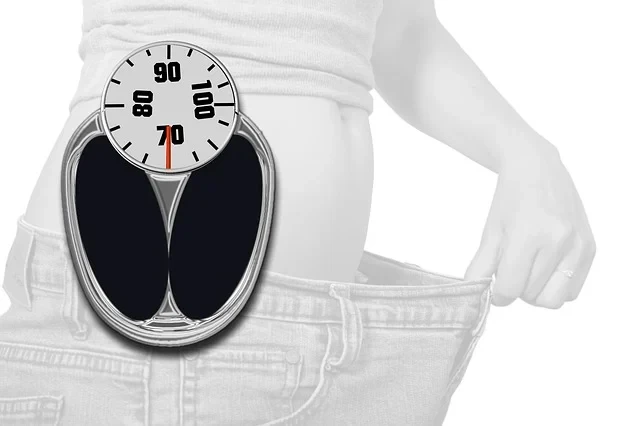Understanding Ideal Body Weight (IBW) - What's Right for You?

Learn about Ideal Body Weight (IBW), how it's calculated, and why it's important for your health and fitness goals.
Understanding Ideal Body Weight (IBW)
Ideal Body Weight (IBW) is a concept that has evolved over decades of medical research. While it's important to understand that there's no one-size-fits-all "perfect weight," IBW provides a useful framework for setting healthy weight goals.
What is Ideal Body Weight?
Ideal Body Weight represents a weight range associated with optimal health outcomes and longevity. It takes into account factors such as:
- Height
- Gender
- Frame size
- Age
- Muscle mass
Common IBW Formulas
1. Devine Formula (Most Widely Used)
For men:
- IBW = 50 kg + 2.3 kg for each inch over 5 feet
For women:
- IBW = 45.5 kg + 2.3 kg for each inch over 5 feet
2. Hamwi Formula
For men:
- IBW = 48 kg + 2.7 kg for each inch over 5 feet
For women:
- IBW = 45.5 kg + 2.2 kg for each inch over 5 feet
3. Miller Formula
For men:
- IBW = 56.2 kg + 1.41 kg for each inch over 5 feet
For women:
- IBW = 53.1 kg + 1.36 kg for each inch over 5 feet
Limitations of IBW Calculations
While IBW formulas provide useful guidelines, they have several limitations:
- Don't account for muscle mass
- May not apply to athletes
- Don't consider body composition
- Ignore ethnic variations
- Don't account for age-related changes
The Relationship Between IBW and BMI
Body Mass Index (BMI) often complements IBW calculations:
- Underweight: < 18.5
- Normal weight: 18.5-24.9
- Overweight: 25-29.9
- Obese: ≥ 30
However, BMI has similar limitations to IBW and shouldn't be used in isolation.
Factors Affecting Ideal Body Weight
1. Body Composition
- Muscle mass vs. fat mass
- Bone density
- Water retention
2. Age
- Metabolism changes
- Muscle mass changes
- Bone density changes
3. Activity Level
- Athletes may weigh more due to muscle
- Sedentary individuals may need lower weights
4. Health Conditions
- Some conditions affect healthy weight ranges
- Medications can influence weight
Using IBW in Goal Setting
When using IBW for goal setting:
- Consider it a guideline, not a strict rule
- Focus on health markers, not just numbers
- Account for your individual circumstances
- Set realistic, gradual goals
- Consider body composition goals
Beyond the Numbers: Health Indicators
More important than hitting a specific weight:
1. Physical Health Markers
- Blood pressure
- Cholesterol levels
- Blood sugar levels
- Resting heart rate
2. Functional Fitness
- Cardiovascular endurance
- Strength
- Flexibility
- Balance
3. Quality of Life
- Energy levels
- Sleep quality
- Mood
- Physical comfort
Healthy Approaches to Reaching IBW
1. Sustainable Diet Changes
- Focus on whole foods
- Balanced macronutrients
- Appropriate portion sizes
- Regular meal timing
2. Regular Physical Activity
- Combination of cardio and strength training
- Activities you enjoy
- Consistent routine
- Gradual progression
3. Lifestyle Modifications
- Adequate sleep
- Stress management
- Hydration
- Work-life balance
Special Considerations
Athletes
- May have higher weights due to muscle mass
- Should focus on performance metrics
- Need sport-specific body composition
Elderly Individuals
- Different healthy weight ranges
- Focus on maintaining muscle mass
- Consider bone health
Pregnancy
- Different weight guidelines
- Regular monitoring needed
- Healthy weight gain important
When to Seek Professional Guidance
Consult healthcare providers when:
- Significant weight changes needed
- Medical conditions present
- Unusual weight fluctuations occur
- Struggling with weight management
- Athletic performance goals
Tools for Tracking Progress
1. Measurements
- Weight
- Body circumferences
- Body fat percentage
- Progress photos
2. Health Markers
- Regular check-ups
- Blood work
- Fitness assessments
3. Lifestyle Factors
- Food diary
- Activity log
- Sleep tracking
- Stress levels
Conclusion
Ideal Body Weight is a useful concept when used appropriately. Remember:
- It's a range, not an exact number
- Individual factors matter
- Focus on overall health
- Make sustainable changes
- Seek professional guidance when needed
Your ideal weight should support your health, energy levels, and quality of life. Use IBW as one of many tools in your health journey, not as the sole measure of success.

